President Donald Trump’s close ties to the crypto industry and his shunning of presidential norms are both being highlighted Thursday night as he hosts investors in his official “memecoin” for an exclusive dinner outside Washington, D.C.
The dinner—which will take place at the Trump National Golf Club in Northern Virginia—was announced last month on the memecoin’s social media channels and website. According to the rules, the top 220 holders of the memecoin as of May 12 would be invited to the event, subject to their registration on the memecoin’s leaderboard and a background check. The top 25 holders would also be awarded a “Private VIP Reception” with Trump and a separate tour. The website initially described the tour as a “Special VIP White House Tour,” but has since changed the language to only a “Special VIP Tour.” It is unclear exactly when and where that tour will take place.
Trump launched his official memecoin—a type of novelty cryptocurrency—in January, shortly before his inauguration. The exact ownership of the memecoin, $Trump, is obscured behind several limited liability companies linked to Trump and his family. CIC Digital LLC—an affiliate of the Trump Organization—and Fight Fight Fight LLC collectively own 80 percent of the total memecoin. Both CIC Digital and Celebration Cards LLC, which owns Fight Fight Fight, receive trading fees from the memecoins.
Some ethics experts believe that the memecoin, and the exclusive dinner for its top investors, is a serious ethics concern. “President Trump used the presidency in his first term to raise money for his businesses, but nothing this blatant,” Richard Painter, who served as the chief ethics adviser to President George W. Bush from 2005 to 2007, told The Dispatch in an email. “Trump now seeks to take this to the next level—Teslas are sold at the White House, he issues his own personal memecoin, and he offers private dinners for investors in the coin. This is the use of public office for private gain in violation of federal ethics rules.”
Unlike traditional cryptocurrencies, memecoins like $Trump do not have any inherent function or utility beyond their novelty. Cryptocurrency “coins” like Bitcoin and Ether operate on their own native blockchains, meaning they derive some portion of their value from the underlying utility of their blockchain technology. Ether, for example, powers activity on the Ethereum blockchain, where users can build decentralized applications and create smart contracts—automated agreements that execute actions like transferring funds when certain conditions are met. So while some investors treat it purely as a speculative asset, Ether also derives value from its actual utility in digital ecosystems.
However, memecoins are typically built on top of existing blockchains, and therefore offer no unique utility to their owners. Instead, memecoins serve as a digital collectible and are often subject to speculative trading and high price volatility. For example, the price of the $Trump memecoin appreciated by a factor of 20 in the first two days following its release in January, before falling substantially. Its value also rose by around 30 percent in the days following the announcement of the exclusive dinner event.
The highest ranked investor on the leaderboard held approximately $18 million worth of the memecoin as of Wednesday, with the lowest qualifier for the dinner holding approximately $60,000 worth. The identities of those attending the exclusive dinner are largely unknown. While they were required to provide their real names when registering on the memecoin’s leaderboard—and will have to undergo a security screening and background check for the event—only their cryptocurrency wallet addresses and a three-to-four-character username are publicly available. Some buyers, however, have identified themselves publicly or been identified by reporters.
Evidence suggests that the top $Trump holder on the leaderboard—identified with the username “Sun”—is Justin Sun, a Chinese crypto entrepreneur and an adviser to World Liberty Financial, a separate crypto firm controlled by the Trump family unrelated to the memecoin. Sun has publicly identified himself as the top holder of $Trump and announced this week that he would be attending the dinner. “As the top holder of $TRUMP, I’m excited to connect with everyone, talk crypto, and discuss the future of our industry,” he wrote in a post on X.
Word Liberty Financial announced Sun as an adviser one day after he purchased $75 million worth of the firm’s governance tokens in November 2024. In February 2025, the Securities and Exchange Commission asked a court to pause a fraud investigation into him and three of his businesses. Sun did not respond to a request for comment from The Dispatch.
The second largest holder—identified with the username “MeCo”—is MemeCore, a Singapore-based crypto collective made up of about 60 investors. The group announced this week that it had secured a spot at the dinner, with Chief Business Development Officer Cherry Hsu telling the Washington Post that a co-founder of the venture nicknamed “Ice” would be attending the dinner on the group’s behalf.
Sheldon Xia, the founder of crypto exchange BitMart, has also claimed to be in the top 25 $Trump holders. “Just made it into the Top 25 of the Trump Meme Contest—heading to the VIP Reception & Gala Dinner on May 22 at Trump National Golf Club DC, plus a private VIP tour the next day,” he posted on X. Xia did not respond to a request for comment from The Dispatch. Another top-25 attendee is Ogle, a prominent crypto player who has professionalized the recovery of stolen cryptocurrency funds. Ogle declined to comment on his attendance at the dinner. Journalist Molly White identified a number of other attendees in her newsletter Citation Needed, most of whom are likely based outside of the U.S.
An analysis by Bloomberg in early May revealed that 19 of the top 25 holders registered to the leaderboard at the time had used cryptocurrency exchanges that do not allow U.S. customers, meaning it is likely that a majority of the registrants are foreign buyers. The same analysis showed that at least 56 percent of the top 220 $Trump holders at the time had used exchanges that do not operate in the U.S. Many prominent cryptocurrency exchanges, such as Binance and Bybit, do not serve U.S. residents in order to avoid complex and costly U.S. federal and state-level regulatory requirements.
Trump administration critics have called attention to the likelihood that a substantial number of attendees are foreign investors, suggesting that Trump’s memecoin venture could serve as an avenue for foreign interests to attempt to influence White House policymaking and purchase access to administration officials.
“Because the identities of the coin purchasers need not be publicly disclosed, there is no way to tell who is buying the coin, potentially allowing bad actors, including authoritarian governments and companies they control, to enrich the Trump family,” Democratic Reps. Joseph Morelly, Jamie Raskin, and Gerald Connolly (who passed away Wednesday at age 75 after battling cancer), wrote in a May 14 letter to Treasury Secretary Scott Bessent.
Paying for access to prominent politicians is not a particularly new or unique phenomenon—political action committees (PACs) have often charged high ticket-prices for exclusive fundraising events with serving politicians and political candidates. Trump himself has hosted several big-ticket fundraising dinners over the past several months, charging wealthy donors upward of $1.5 million to dine with him at his golf clubs. PACs, however, are prohibited from accepting contributions from foreign nationals—a restriction that does not apply to investors in Trump’s memecoin. Similarly, investors in the memecoin are, through trading fees, directly profiting the Trump Organization.
“There’s no precedent for it,” Virginia Canter, who served as an ethics adviser to Presidents Bill Clinton and Barack Obama, told The Dispatch. “Trump is literally getting paid for people to have access to him. It’s pay for play. We’ve never seen that, ever. There have been questions raised in the past about whether campaign donors have too much access based on their contributions. But here, forget the campaign—it’s just going right into his pocket.”
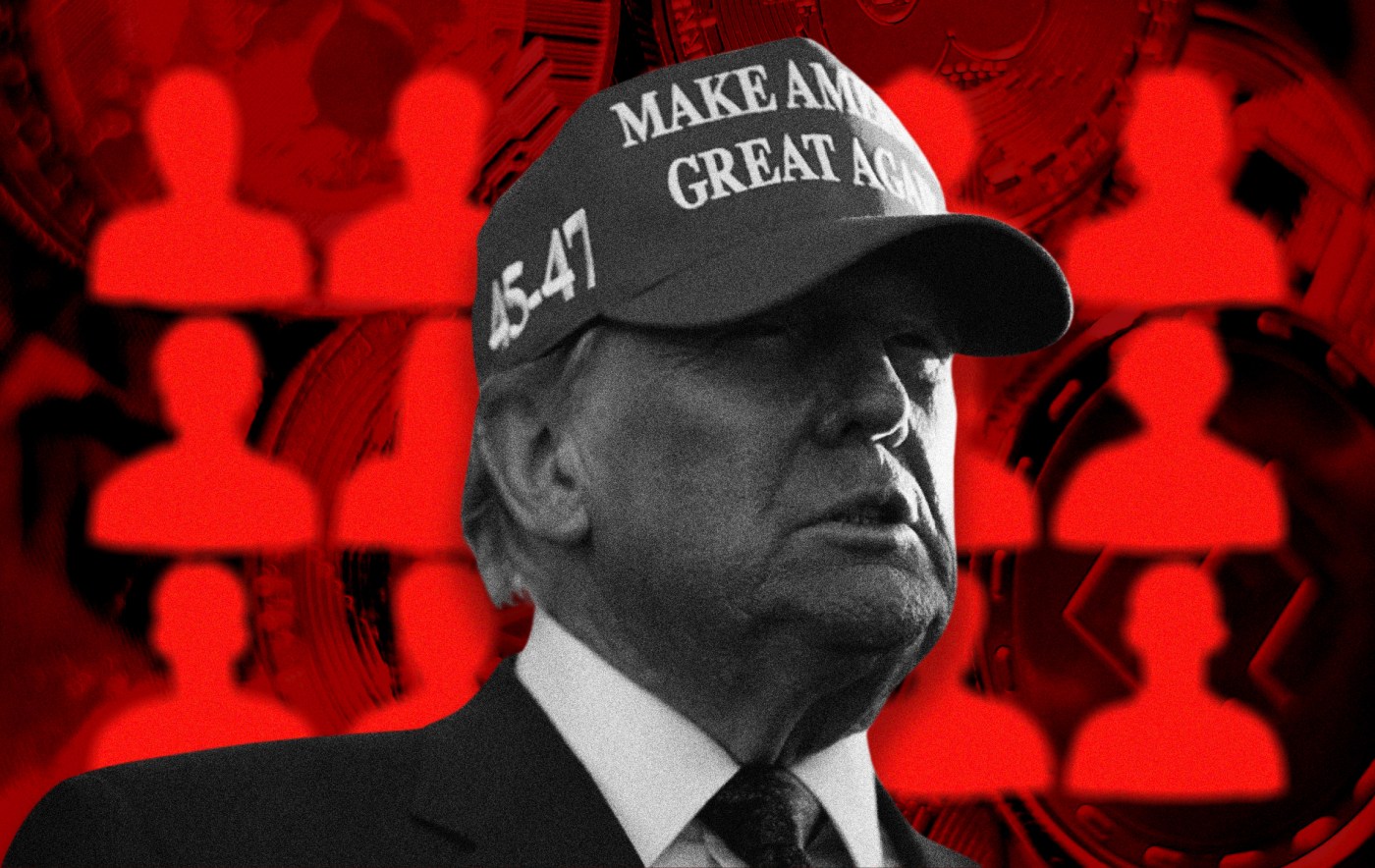

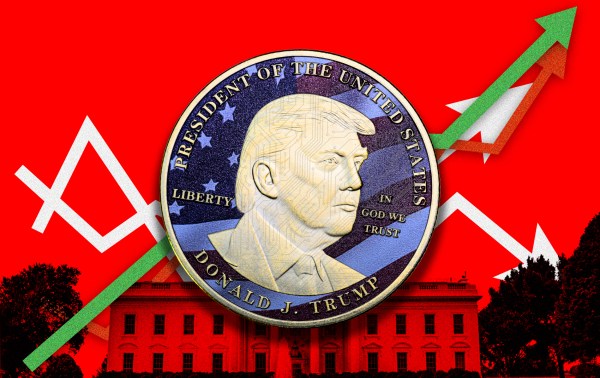
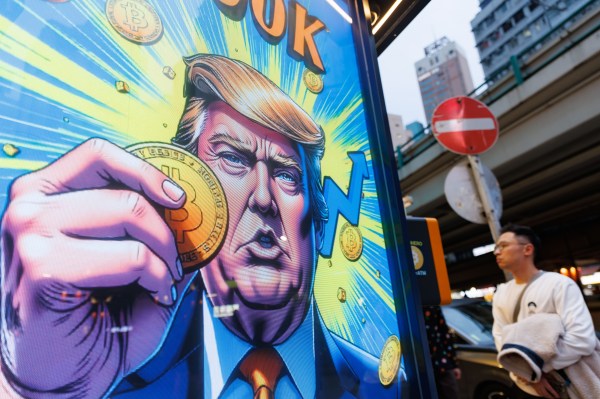
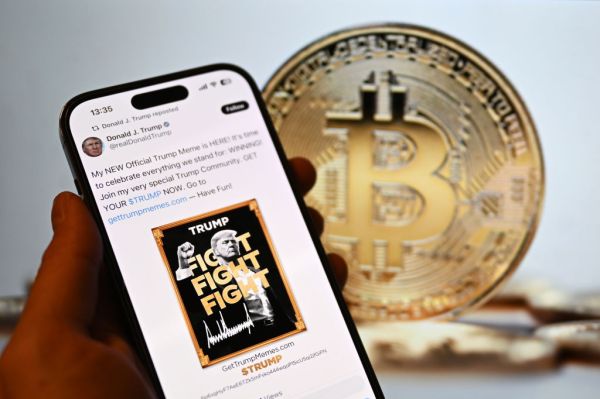

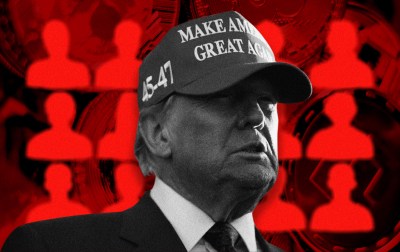
Please note that we at The Dispatch hold ourselves, our work, and our commenters to a higher standard than other places on the internet. We welcome comments that foster genuine debate or discussion—including comments critical of us or our work—but responses that include ad hominem attacks on fellow Dispatch members or are intended to stoke fear and anger may be moderated.
With your membership, you only have the ability to comment on The Morning Dispatch articles. Consider upgrading to join the conversation everywhere.